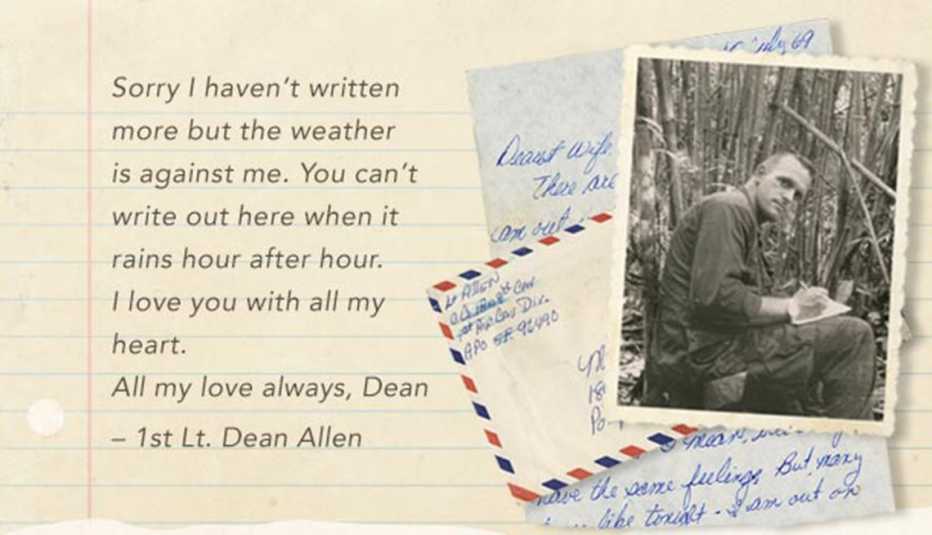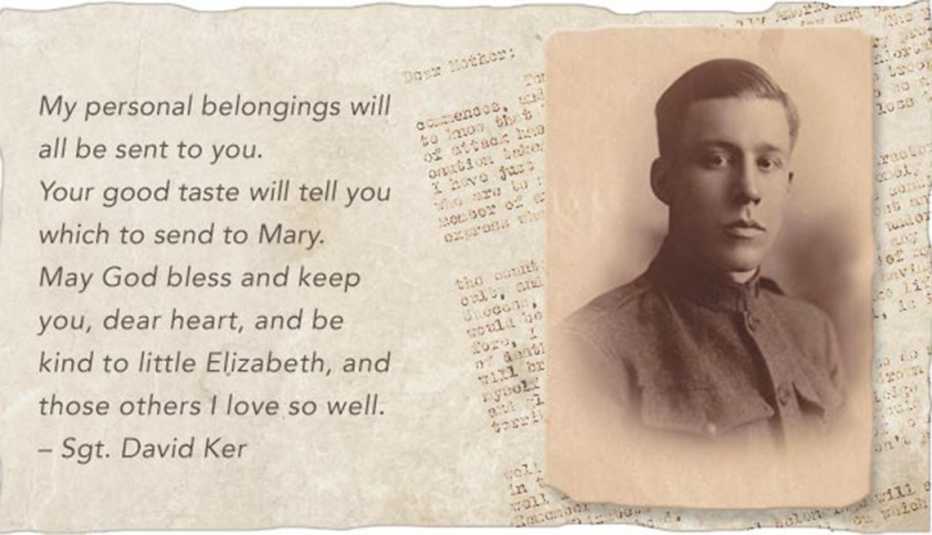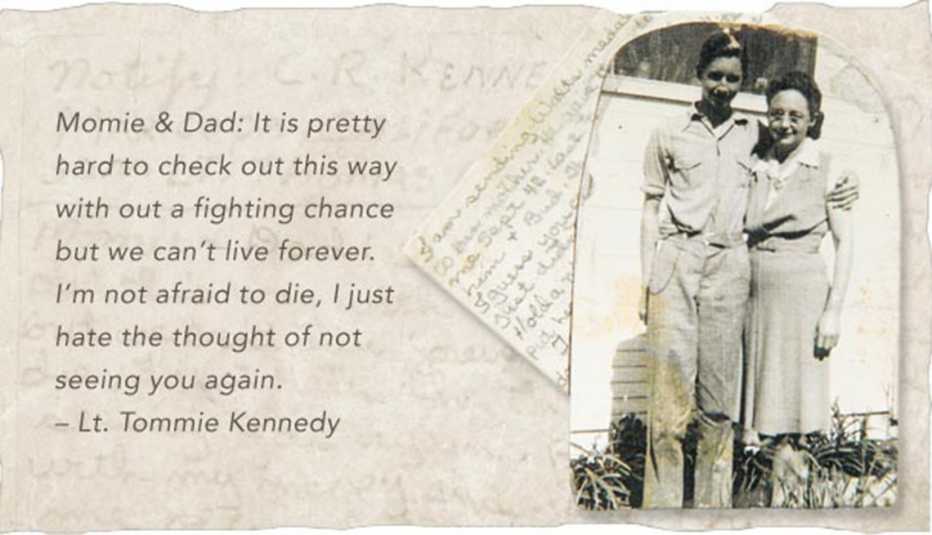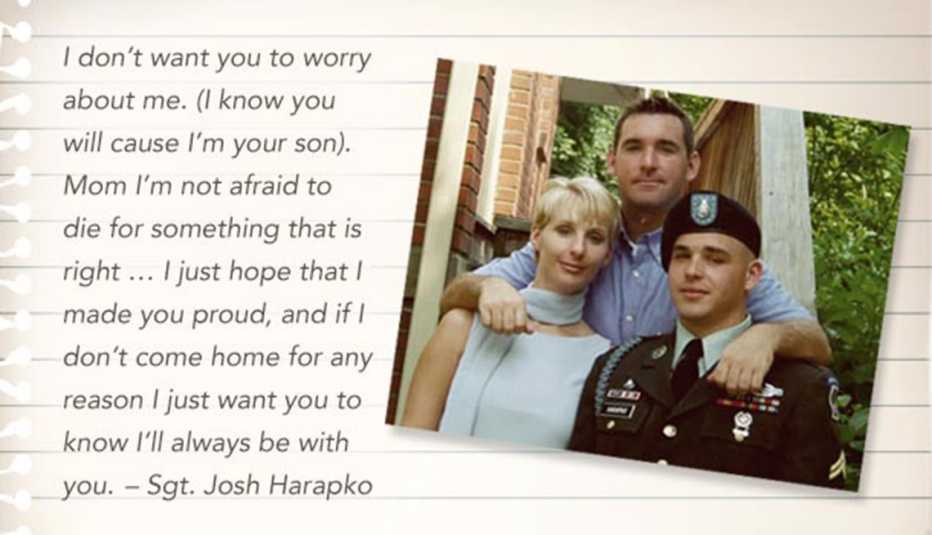Staying Fit
"There are many times while I am out in the field that I really feel the need to talk to you," 27-year-old 1st Lt. Dean Allen wrote to his wife, Joyce, from Vietnam on July 10, 1967. “Not so much about us but what I have on my mind.” At 6-foot-1, 200 pounds, Allen cut an imposing figure, but under his tough exterior was a compassionate, thoughtful officer who genuinely cared for his men. “Being a good platoon leader is a lonely job,” he wrote.


Allen continued the letter the next day:


AARP Membership— $12 for your first year when you sign up for Automatic Renewal
Get instant access to members-only products and hundreds of discounts, a free second membership, and a subscription to AARP the Magazine.
It got so dark I had to stop last night. …
Writing like that doesn’t really do that much good because you aren’t here to answer me or discuss something. I guess it helps a little though because you are the only one I would say these things to. Maybe sometime I’ll even try to tell you how scared I have been or am now. … Sometimes I really wonder how I’ll make it. My luck is running way to good right now. I just hope it lasts.
Don’t worry about what I have said, these are just things I think about sometimes. I am so healthy I can’t get a day out of the field and you know I’m to damn mean to die. …
Sorry I haven’t written more but the weather is against me. You can’t write out here when it rains hour after hour.
I love you with all my heart.
All my love always, Dean
Four days later, Allen stepped on a land mine. He became one of the more than 58,000 Americans who died in Vietnam.
Play Video: Joyce Allen, widow of Lt. Dean Allen
* * * *
Since the early days of the Revolutionary War, American soldiers have been writing letters that shared their fears, hopes for the future, and love with those who waited anxiously behind.
“This is the first chance I have had to write you. I am, by the cause of Providence, in the field in defence of my country,” James Williams began a letter to his son, Daniel, on June 12, 1779. Williams went on to express how deeply he missed his eight children and their mother, “who sits like a dove that has lost its mate, having the weight of the family on her shoulders.” He described the accidental death of a fellow soldier, then concluded, “uncertainty of life ought to induce every man to prepare for death.”
Williams died at the Battle of Kings Mountain in South Carolina. His letter is among the earliest of those preserved in which American soldiers confront the possibility that they are communicating with loved ones for the last time. Sadly, those last letters home would continue to document the tragic legacy of war, through Iraq and Afghanistan.
From Bunker Hill to Fallujah, Americans have written hundreds of millions of war letters. Their words form the pages of our national autobiography, offering eyewitness accounts of major battles from Lexington and Antietam to Normandy, the Chosin Reservoir, Khe Sanh and Kandahar.
On a more personal level, these correspondences provide a tangible connection to the past and humanize our men and women in uniform, capturing their distinct personalities, experiences and aspirations. Through their words, we see them as more than just soldiers, Marines, airmen and sailors. They are a parent, a sibling, a child, a spouse, a fiancé or a best friend. Ultimately, these letters, which are reproduced without spelling or other corrections, ensure that we never forget the sacrifices made for the nation. Here are some of the last thoughts from those who died in action, as only they could express them.
On Sept. 11, 1918, Sgt. David Ker, a Columbia University student who had dropped out of college to fight in World War I, sent a letter to his mother the day before the attack on Saint-Mihiel in France. While some troops consider it bad luck to write an “in case I die ...” letter, Ker wanted his mother, his sister (Elizabeth) and his fiancée (Mary) to keep their spirits up, no matter the outcome.




































































More on Home and Family
Stand Your Ground Without Hurting Feelings
How to talk about hot-button topics with friendsCommunity Volunteer Opportunities with AARP Foundation
Learn about volunteering in your community to help make a difference with AARP Foundation.